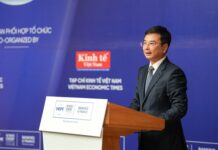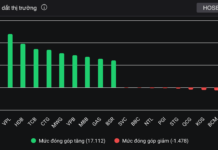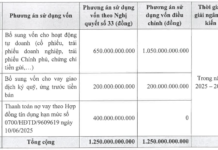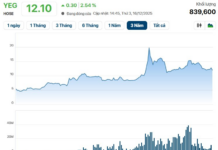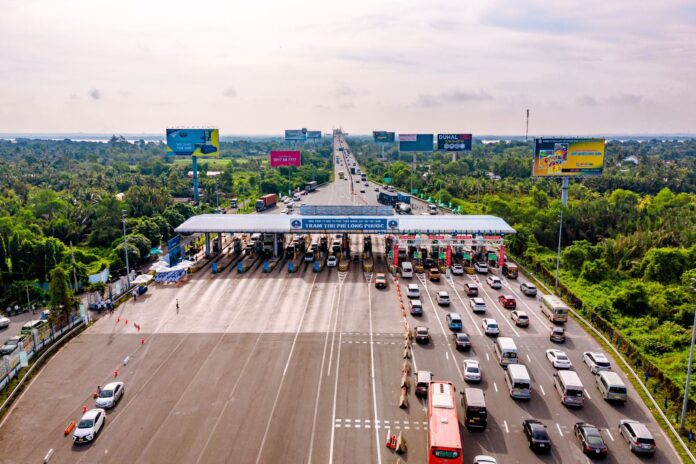In a recent research report titled “Implementing Electronic Toll Collection (ETC) on Expressways: Global Dynamics. Estimated Benefits from Vietnam’s Case Study and Policy Discussions,” Assoc. Prof. Dr. Vu Minh Khuong highlighted the significant benefits of Vietnam’s transition to electronic toll collection systems. This report was also published on the website of the Lee Kuan Yew School of Public Policy, National University of Singapore (NUS).
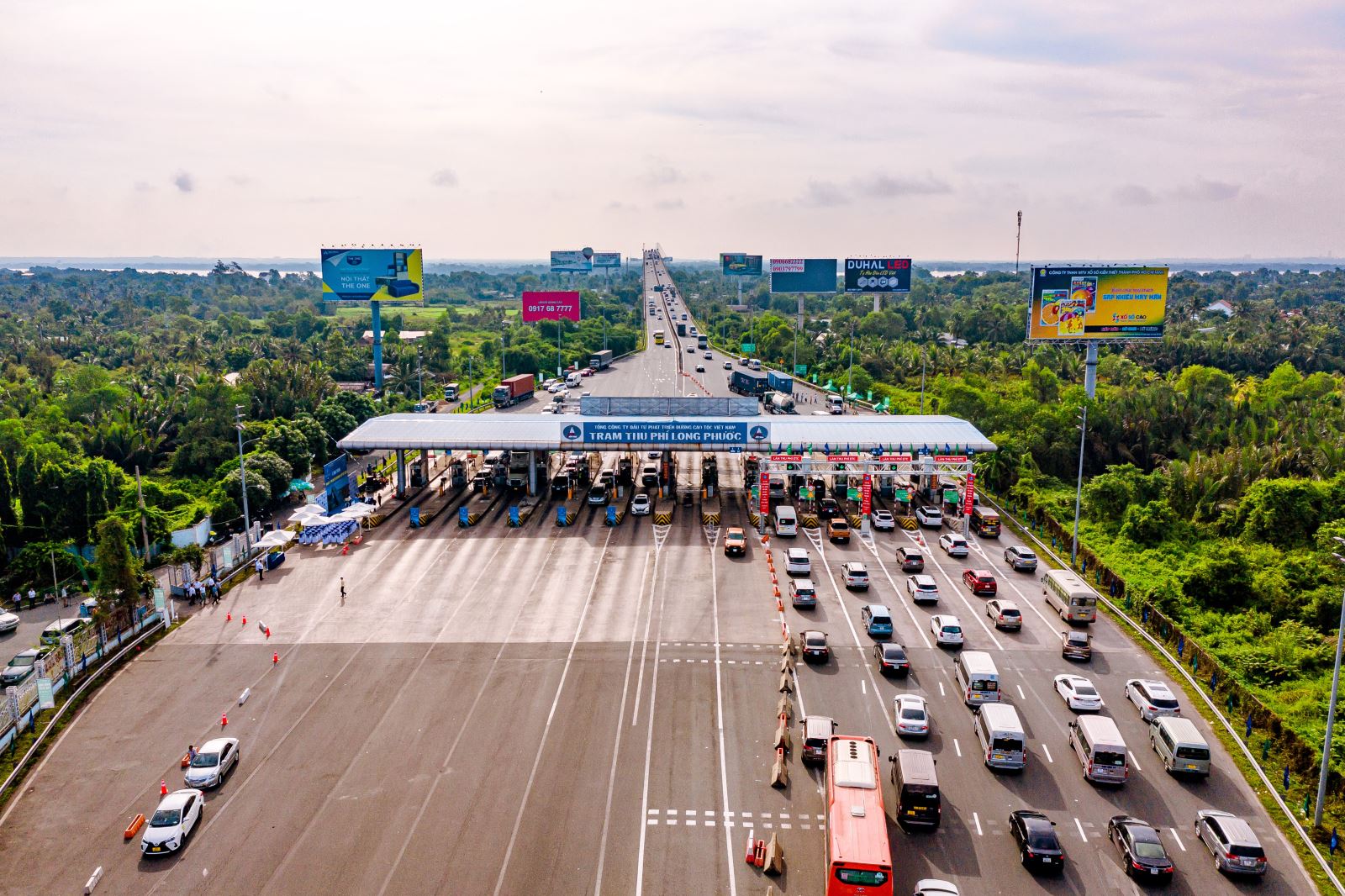
The implementation of ETC reduces emissions, saves energy, and brings economic benefits. Photo: S.K.
The report, spanning almost 50 pages, provides a comprehensive overview of the global ETC market, including the transition processes in China and India, and details the potential benefits of adopting ETC on expressways, with a particular focus on Vietnam. With a market size of $9.2 billion in 2023 and a predicted CAGR of 8.10% from 2020 to 2029, the report underscores the growing importance of ETC, primarily driven by its application on expressways.
Assoc. Prof. Dr. Vu Minh Khuong also emphasized Vietnam’s remarkable economic achievements since the Doi Moi reforms in 1986, with the development of the expressway system being a key priority. As of 2021, Vietnam had 1,290 kilometers of expressways and has set a target of 5,000 kilometers by 2030. This development goes hand in hand with the country’s determined shift from manual toll collection (MTC) to ETC on national highways and expressways since 2019.
The impressive outcomes of this transition include significantly reduced travel time, eliminated traffic congestion at toll booths, decreased fuel consumption, and reduced carbon emissions. As a result, transportation efficiency, environmental conditions, and public health have all witnessed substantial improvements.
In 2023, the first year of full ETC implementation on Vietnam’s expressways, the total CO2 emissions reduction reached 191,860 tons, attributed to a reduction of 60,816 tons of gasoline and diesel fuel consumption at toll booths. Additionally, society saved 93.3 million hours in manpower and 37.3 million hours in vehicle lifespan that year.
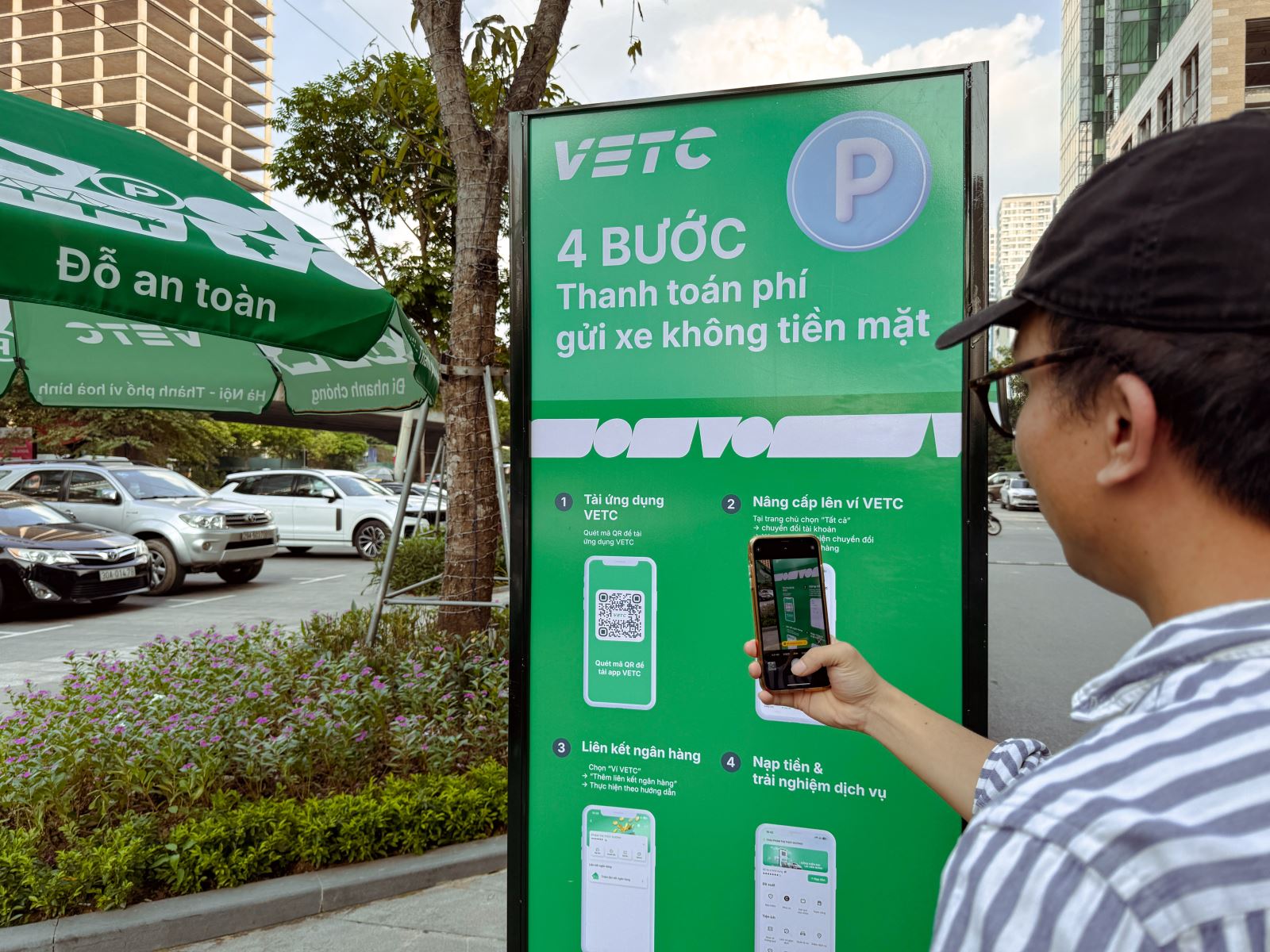
ETC implementation is not limited to expressways and national highways but will also extend to car and motorcycle parking lots, airports, gas stations, and automobile service stations nationwide. Photo: Tasco
Monetarily, the report estimates the total savings for 2023 in terms of energy, manpower, vehicle lifespan, and operating costs to be a staggering $442.7 million. Compared to 2019, when ETC promotion began, the benefits in terms of reduced CO2 emissions and total monetary savings have increased fourteenfold. For the period 2019-2023, Vietnam’s gains from ETC implementation are valued at nearly $1 billion.
The report also draws attention to the crucial role of the government in driving this transition, forming a dedicated task force to promote technology in infrastructure development. This initiative helped overcome initial hurdles and facilitated swift and large-scale implementation. Additionally, the involvement of private companies in deploying and managing ETC infrastructure enhanced efficiency and speed, showcasing the successful collaboration between the public and private sectors in Vietnam.
Lastly, the adoption of ETC marks the beginning of a broader digital transformation in the transportation sector, paving the way for smart transportation. The data generated by ETC systems is invaluable for advanced traffic management, economic analysis, and business decision-making. The potential applications of ETC should be expanded to include similar digital payment systems for urban toll collection, e-parking, cashless fuel payments, and other fee-based services.









